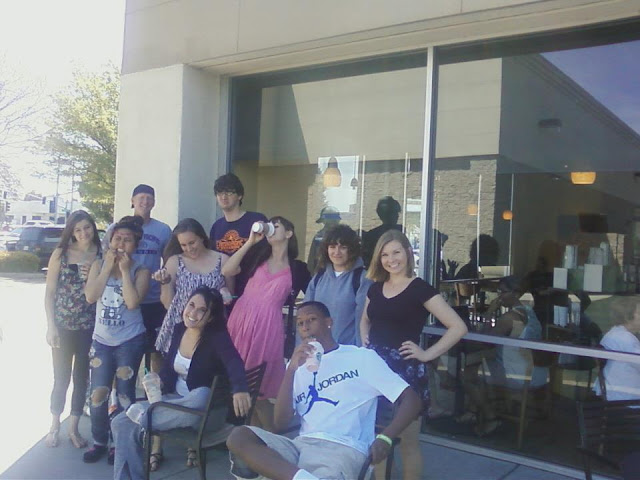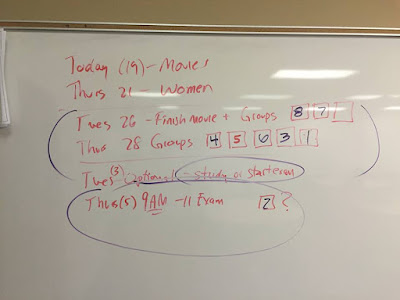 Of course, you know the final has been posted since April 19. But here it is with the exact questions for Part 1 revealed (in red) Review class blog to be prepared for Part 2 (The questions will not be detailed. One question from each month of class).. But spend most of your time prepping for part 3.
Of course, you know the final has been posted since April 19. But here it is with the exact questions for Part 1 revealed (in red) Review class blog to be prepared for Part 2 (The questions will not be detailed. One question from each month of class).. But spend most of your time prepping for part 3.========
Final: May 5 9:00-11:00 AM

Note exam description and detailed grading rubric in syllabus.
Watch your MUGs.
Watch your MUGs.
Watch your MUGs.
Watch your MUGs.
Part 1 and 2: Finish in exam session. Closed book/computer. Designed to take 1/2 hour or less total.
Part 3: Open book/computer. Finish in exam session, or if more time needed, email by 4:59 pm that day. Designed to take the majority of the time (Hour?)
Part 1
|One simple question for each textbook, designed to check reading comprehension and personal application. Questions will be from the specific, short sections listed, but of course may well need a sense of broad sweep of the book. May be a question, multiple choice, or fill in the blanks
a)Strengths-Based Leadership--
"Why People Follow"/"Leadership That Lasts Beyond a Lifetime" -- pp. 73-95
Question: How do the best leaders answer the question: 'How do you convince a person of your honesty?'
b)Overcoming the Dark Side of Christian Leadership--
Step 4: Practicing Progressive Self-Knowledge --pages vary by edition
Fill in blank: "The only place we can really be ourselves is _________"
c)In the Name of Jesus--
Epilogue -- pp. 75-81
Fill in blank:
"And we did it _______________, didn't we?"
d)A Tale of Three Kings--
Chapter 8, pp. 21-22.
Question: write a sentence that proves you got the heart of this chapter
Part 2
Four short-answer questions from class content. Use blog to review.
Part 3
a)Quote the definition of leadership you wrote on your name sign the first week of class.
(If you didn't do it, or don't have access, just write up a short definition; reflecting how you would have defined leadership when the class started).
Now write a new definition, based on learnings from class. Aim for 1-3 sentences; can be as nuanced and detailed as you like. This will form the launching pad --maybe even your thesis or outline--for part b.
b) Essay answer: Using elements from your new definition, and perhaps noting how you have grown from your older definition, incorporate class material to talk about what leadership is to you.
Spend approximately half the time on this, and half the time plotting out a potential plan for the next year of your growth in leadership. It may be helpful to ultilize the four parts of the outline of the class.
------------------------
Three Alternatives for Part 3
-Use the Edwards book as your main focus, and incorporate other class material from there.
-Use Pope Francis as your main focus, and incorporate other class material from there .
Help : see posts tagged "Pope Francis" here, a book review/summary here and here and most of the book Pope Francis: Why He Leads The
Way He Leads is readable online here.
-Use the leadership lessons from the movie you chose to watch in class in April, and incorporate other class material from there.
(Shhh. secret message: do not read unless you want extra credit:
This will be a bonus/extra credit question on the exam: Find the third word on page 3 of the Nouwen book. Name 3 things that you know about the place represented by that word. Then write a sentence about why places like this are so important for leaders to be familiar with; visit, or even live)













